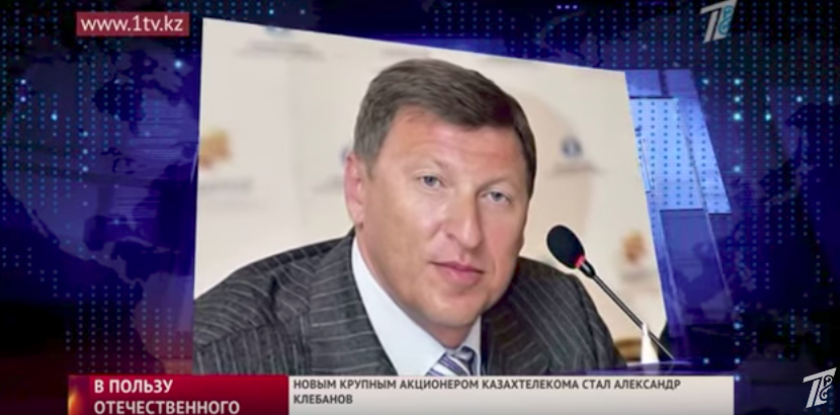The well-known fact that, even without the Astana financial center, Kazakhstan is, essentially, an offshore economy is going to be one of most complicated and practically unsolvable problems for Akorda during the transition period. The matter is that offshore companies control a significant part of the economy especially the high-income enterprises such as oil and gas industry, non-ferrous metallurgy, and communications.
Obviously, as soon as the question of the post-Nazarbayev power transition becomes a practical matter, the inner-elite contradictions will inevitably lead to an escalation of the clan wars. Then, leaking the information on who the real owners of these offshores (and, consequently, the big Kazakh assets controlled by them) are will be practically unavoidable and may prove to be dangerous for certain persons.
At that, as opposed to Vladimir Putin, the Kazakh leader is not able to afford the deoffshorization of the ruling elite due to both objective and subjective reasons.
Among the objective reasons, the relative paucity of the Kazakh elite (compared to the Russian one) and its inability to be competitive play the crucial part. Among the subjective ones, we can name the tight concentration of the large assets in the hands of the president’s closest relatives and allies. At that, these assets have not always been obtained in the correct and legal way which can make them extremely vulnerable in the future.
As an example, we cite the case of the Kazakhtelecom national company. First, we will quote the governmental resolution of June 15, 2016 titled “On Disposal of the Strategic Objects”.
“Based on Article 193-1 of The Civil Code of Kazakhstan, the Government of the Republic of Kazakhstan rules –
- To allow the DERAN SERVICES B.V company to complete the 7.6% Kazakhtelecom equity carve-out deal in favor of Sobrio Limited.
- This resolution is to be put into effect on the day it is signed.
Prime-Minister of the Republic of Kazakhstan K. Masimov”.
On June 1, 2016, Forbes Kazakhstan published on its site an article called “To Whom Is Aygul Nuriyeva Selling Her Kazakhtelecom Shares?” that disclosed the following information on the upcoming deal (text in bold by Forbes Kazakhstan).
“Based on the Kazakhstan Stock Exchange (KASE) data, as of April 1, 2016, 15.18% of the Kazakhtelekom shares belongs to BODAM B.V., 45.90% – to the Samruk-Kazyna National Welfare Fund, 6.84% – to DERAN SERVICES B.V. At that, based on the KASE data, as of April 1, 2016, the earning value of one national company’s ordinary share amounts to 31 805 tenge, the earning value of one preferential share amounts to 8 640 tenge. Note that BODAM B.V. and DERAN SERVICES B.V. belong to Aygul Nuriyeva who is listed 8th in the Kazakhstan’s 50 Richest – 2016 Forbes rating. Her wealth is estimated at $675 mln.
As a result of the affiliated mobile network operators (Kazakhtelekom and Tele2 Group) merger, she received $15 mln and 18% of the Tele2 joint venture for her 49% share of Mobile Telecom-Service (Tele2). The deal was completed at the end of February, 2016. In the middle of March 2016, Aygul Nuriyeva resigned from the Kazakhtelecom board of directors. As for the company to which Aygul Nuriyeva is selling her Kazakhtelecom stock, Forbes.kz has learned from open sources that Sobrio Limited is registered in London and sells food, drinks, and tobacco products. Sebastian Charles Robert is the company’s only founder. Based on the 2015 data, its current assets amounted to 91 559 pounds, its shareholder ownership capital – to 17 471 pounds”.
Then, on July 5, 2016, the KASE published on its site –
“The Kazakhtelecom company (Astana) whose shares are on the official KASE list has presented the following information.
As a result of the deal completed within one group, the Sobrio Limited company has become the new large Kazakhtelecom shareholder. It purchased the company’s shares from its affiliated bodies – Bodam B.V. and Deran Services B.V. (Netherlands). Klebanov A.Ya. is the owner of all the three companies. The deal was completed for the purpose of optimizing and clarifying the Kazakhtelecom ownership structure as part of a possible IPO preparation. As a result, Sobrio Limited has obtained the ownership of 24.47% of the company’s ordinary shares”.
And now, based on our sources, in completing the 24.47% Kazakhtelecom purchase deal, Alexander Klebanov did not act independently but for the benefit of a certain private person who chose to conceal the fact of simultaneously obtaining both the minority share of the national company and the de-facto control over its operations.
It was supposed that, later, this person would reregister the Kazakhtelecom shares to the subsidiary companies. However, the economic crisis and the political circumstances including the concerns not to trigger the critical attitudes in the society have resulted in the fact that this business-operation is now stuck midway making Klebanov not just a prisoner of the situation but someone who is sustaining real financial losses.
To a certain degree, these losses have been covered by his earning received from participating in the construction of the EXPO-2017 objects. Based on our information, Alexander Klebanov, is now trying to either secure a part of the Kazakhtelecom shares that he formally owns or to obtain one or another national company’s asset that will allow him to cover the current losses.
Such “offshore” situations have regularly occurred in the past as well. Back then, however, the large financial and image losses notwithstanding, they were solved without significantly damaging Akorda politically. Now, when the power transition process in Kazakhstan is at its crouch start and the future developments depend not only on the political weight, the financial circumstances, and the influence of the candidates for the next presidential term but also on chance events and personal vulnerabilities, they may become critically dangerous.




